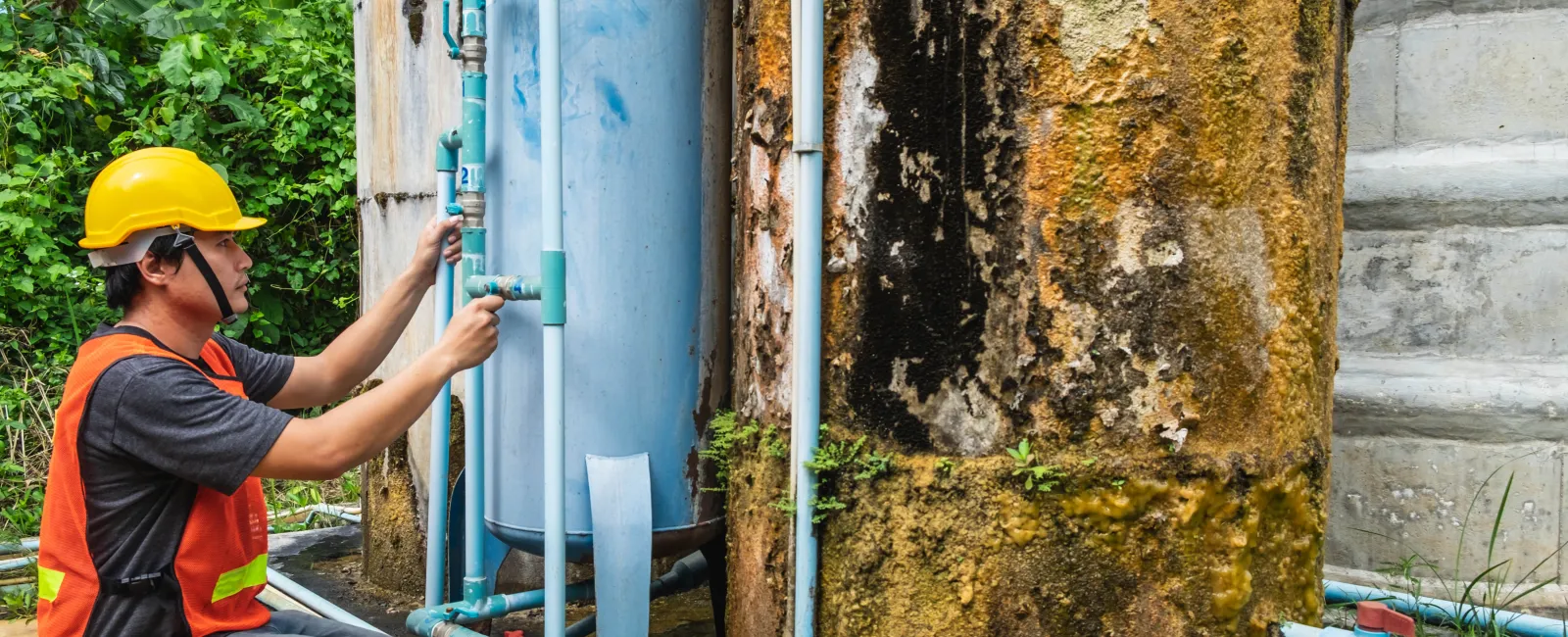When it comes to lowering your utility bills and reducing your carbon footprint, choosing the best energy-efficient water heater is one of the smartest home upgrades you can make. With advancements in technology and the rising cost of energy, homeowners are increasingly replacing older systems with more efficient, cost-effective options. Whether you're considering an electric water heater, gas water heater, or even a hybrid model, knowing the right fit for your home can save you hundreds annually.
Water heater replacement isn't just about buying a newer version of what you already have. It's about finding a unit that aligns with your usage, fuel type, and long-term energy savings. From tankless systems to heat pump water heaters, the market is filled with options that vary in performance, price, and water heater sizes—but which one truly stands out?
Why Energy Efficiency Matters When Replacing a Water Heater
Today's best water heaters are engineered to deliver hot water faster, using significantly less energy than models made even a decade ago. If you're replacing a water heater that's more than 10-15 years old, it's likely costing you more each month in wasted energy than it would to install a new water heater.
Older units—especially standard tank-style heaters—keep water hot 24/7, regardless of whether you're using it. That constant energy burn adds up. Modern electric water heaters and gas water heaters, especially those that are ENERGY STAR® certified, use insulation, smart sensors, and on-demand heating systems to drastically cut energy consumption.
Efficiency is one of the most important factors to consider when choosing between a gas water heater and its electric alternative. Energy-efficient models are designed to use less gas or electricity while still delivering the same amount of hot water, which leads to noticeably lower utility bills. In addition to saving money, these systems also help reduce your environmental impact by minimizing energy consumption and lowering your overall carbon footprint. Over time, the benefits continue to add up—many high-efficiency units qualify for rebates and tax credits, and their reduced operating costs make them a smart long-term investment.
Types of Water Heaters and Their Energy Efficiency
Depending on your household's size, water usage, and available fuel type, one type of water heater may be better than another.
Tankless Water Heaters
Often called on-demand water heaters, these systems heat water only when you need it. This makes them one of the most energy-efficient water heater options on the market. Tankless systems come in both electric and gas models, and while the upfront cost is higher, they typically last longer and provide significant energy savings.
Heat Pump Water Heaters
Also known as hybrid water heaters, these are electric systems that move heat from the surrounding air into the water, instead of generating heat directly. This process uses up to 60% less energy than standard electric water heaters, making them one of the best choices for environmentally conscious homeowners.
High-Efficiency Gas Water Heaters
If natural gas is available in your area, a gas water heater model with a condensing unit can capture and reuse exhaust gases to heat water more efficiently. These are ideal if you're replacing an older gas unit but want to lower your monthly bills without switching to electric.
Conventional Storage Tank Water Heaters
While traditional, tank water heaters still have a place—especially if you choose an ENERGY STAR® model. Thanks to improved insulation and heating elements, newer tank water heaters are far more efficient than previous generations.
Consider These Factors Before You Replace a Water Heater
When it's time to replace your water heater, don't just go with whatever model is on sale. There are several critical factors that affect performance, efficiency, and long-term cost:
Water Heater Sizes: Choose a size that fits your household needs. Too small, and you'll run out of hot water; too big, and you'll waste energy keeping water heated unnecessarily.
Fuel Type: Electricity vs. gas can make a big difference in operating costs depending on your region. Also, some homes may not have access to gas lines, which limits your options.
Usage: A home with multiple bathrooms and high water usage may benefit more from a tankless water heater or a larger storage unit.
Installation Costs: Replacing a tank water heater with a tankless model may involve more complex plumbing and electrical work.
Efficiency Ratings: Look for models with a high Uniform Energy Factor (UEF). The higher the UEF, the more efficient the system.
The Best Water Heaters for Energy Efficiency in 2025
Here are top-performing, energy-efficient options that are highly rated across the industry:
Rheem Performance Platinum Hybrid Electric Water Heater
This model uses heat pump technology, making it one of the most efficient options on the market. It's ideal for medium to large households and offers smart home integration for monitoring usage.
Type: Heat Pump
UEF: Up to 4.0
Size Options: 50, 65, and 80 gallons
Rinnai RU199iN Tankless Water Heater
This natural gas-powered tankless unit is a top contender for households looking to replace a water heater with something compact, powerful, and endlessly efficient.
Type: Tankless Gas
UEF: 0.93
Suitable for: Large households or homes with high demand
A.O. Smith Signature Premier Electric Water Heater
An excellent option if you're set on an electric water heater but want something with better energy performance than standard models.
Type: Electric Tank
UEF: Up to 0.93
Sizes: 40-80 gallons
Choosing the Right Size When Installing a Water Heater
Many homeowners overlook how important water heater sizes are when choosing a new unit. Bigger isn't always better—especially when it comes to efficiency.
If you have a household of four, for example, you might think a large tank is the only way to keep everyone happy during the morning rush. However, installing a tankless water heater might actually provide endless hot water without the standby energy loss of keeping a tank hot 24/7.
When selecting a water heater, household size plays a major role in determining the right capacity. For a home with 1 to 2 people, a 30 to 40-gallon tank or a small tankless unit is typically sufficient. Families of 3 to 4 people will benefit from a 40 to 50-gallon tank or a mid-range tankless system to meet daily hot water demands. Larger households with 5 or more members should consider a 50 to 80-gallon tank or a whole-home tankless system to ensure consistent hot water supply for multiple simultaneous uses.
Choosing the wrong size can lead to higher energy bills, wear and tear on the unit, and inconsistent water temperatures—none of which help you save energy.
When to Replace Your Water Heater
If your current system is more than 10 years old, struggling to deliver hot water, or showing signs of rust and leaks, it's time to replace your water heater. Waiting too long increases the risk of water damage and can spike energy bills due to decreased efficiency.
Modern water heater replacement isn't just a repair—it's a performance upgrade. Installing an energy-efficient system now means future-proofing your home against rising energy costs and supply shortages.
There are several clear signs that indicate it may be time to replace your water heater. If you notice that your water is taking longer to heat than usual, it could be a sign of a failing heating element or sediment buildup. Unusual noises coming from the tank—such as popping, rumbling, or banging—often point to sediment accumulation, which can reduce efficiency and damage the unit. A sudden increase in your energy or gas bills may also signal that your water heater is working harder than it should. Additionally, discolored or rusty water can be a sign of internal corrosion, and any leaking around the base of the tank is typically a warning that the tank is compromised and should be replaced promptly.
Final Thoughts: What's the Best Energy-Efficient Water Heater for You?
So, what is the best energy-efficient water heater? The answer depends on your household size, fuel availability, and budget—but generally, heat pump water heaters and tankless systems are the best because of their incredible efficiency and long-term value. Whether you lean toward an electric water heater or want to go with the best gas water heater for faster heating, upgrading to a modern system is an investment that pays off quickly.
The right choice combines smart sizing, high-efficiency ratings, and compatibility with your home. Don't settle for another 10+ years with an outdated system—replacing your water heater now could be one of the smartest home upgrades you make this year.
Ready for a Water Heater Upgrade?
Still not sure which model fits your home? Work with a plumbing professional at Dalmatian Plumbing who can help assess your home's water usage and recommend the ideal solution. Whether you're interested in a tankless gas model, heat pump hybrid, or simply a better electric water heater, the key to long-term efficiency lies in proper selection and expert water heater installation.
Upgrade your home's efficiency—contact Dalmatian Plumbing today to have a new, energy-saving water heater professionally installed!


